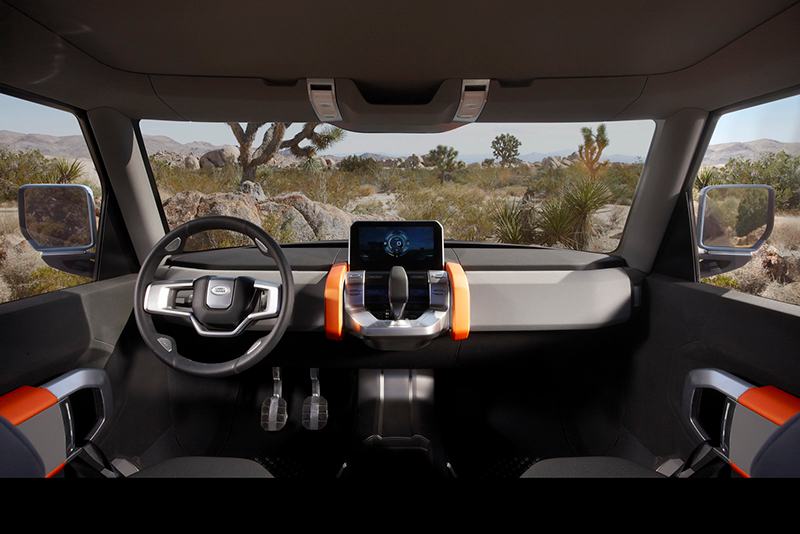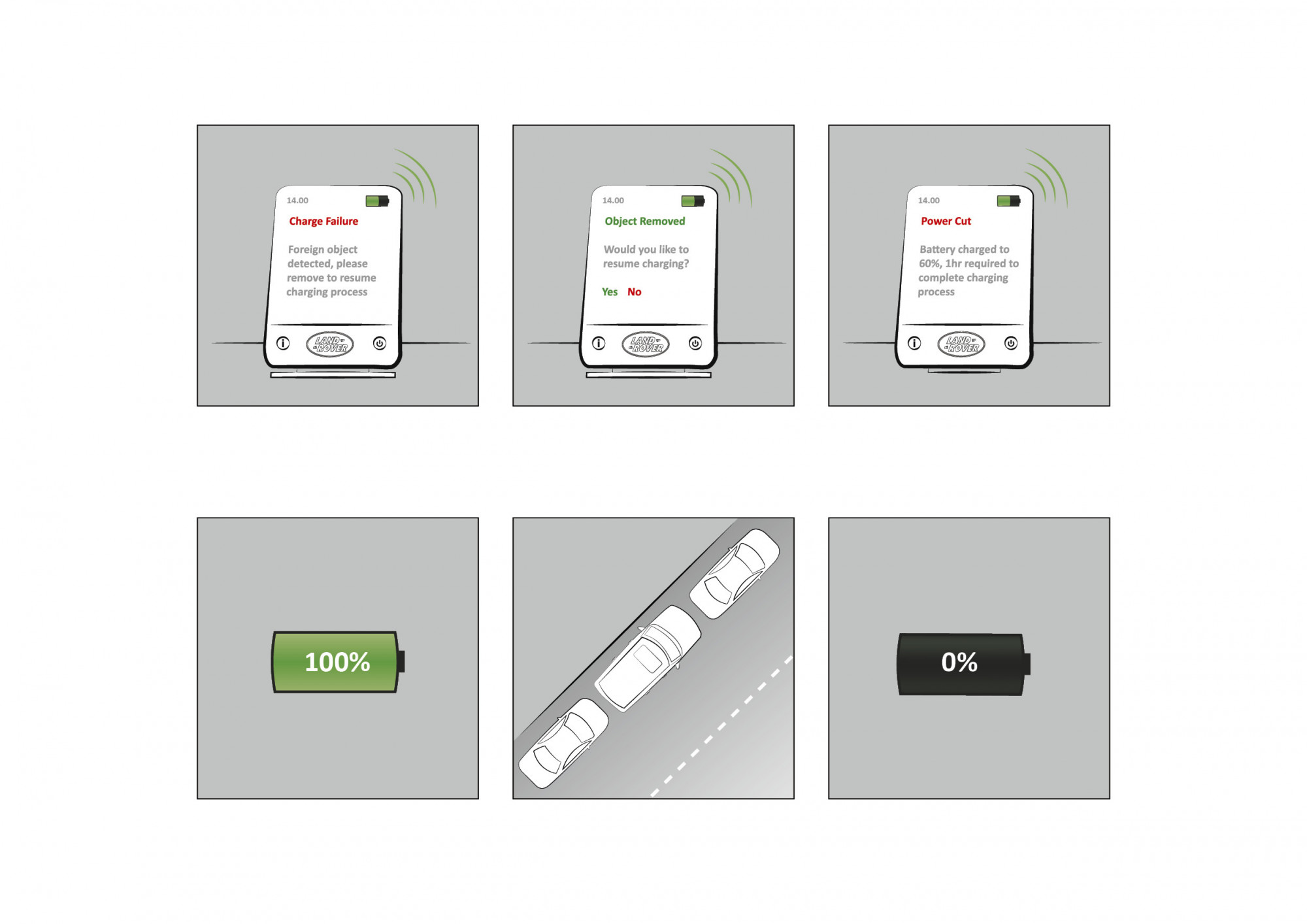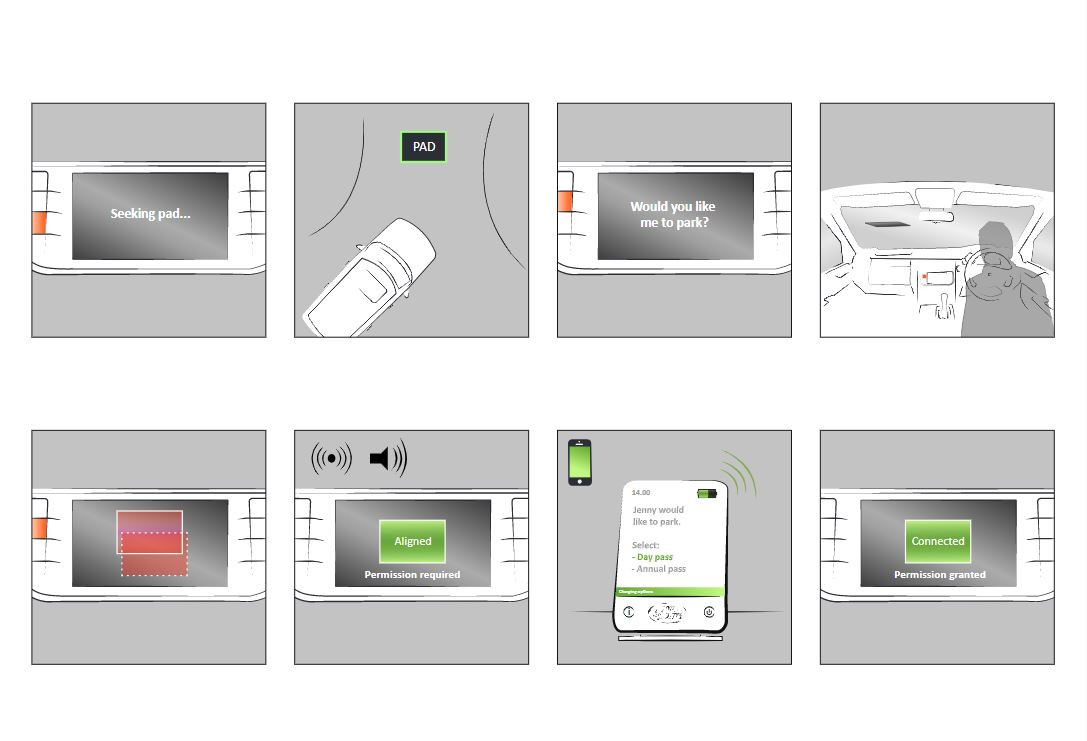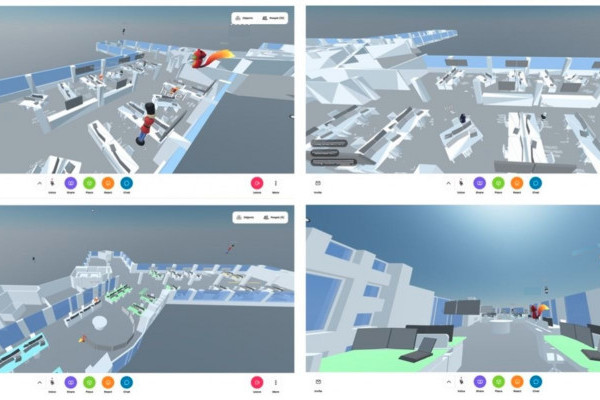
A luxury automotive brand
Developing a UX digital concept for automotive inductive charging
Mima was responsible for the development of a new concept of digital interaction in hybrid cars to control and manage a new inductive charging technology.
Our Task
How might inductive charging technology be developed to deliver a ‘premium experience’ for customers of luxury cars? How might the technology integrate with other vehicle technologies such as self-park?
Our Solution
Our work included the development of the overall concept of use, defining use cases and designing interaction concepts for the in-car interface. The scope included a service proposition for public/private inductive charging and the design of interface concepts. Built on insights from design research conducted with customers & dealers, we explored the various use cases for customers using inductive charging technology and mapped the service for at home, at work, at friends or family and in public. We built prototype user interfaces for the in-car displays and mobile devices that allowed us to do some early feedback testing with our client's customers. We also used the research to understand if customers felt the use of the technology was ‘premium’ in line with the luxury automotive brand.





